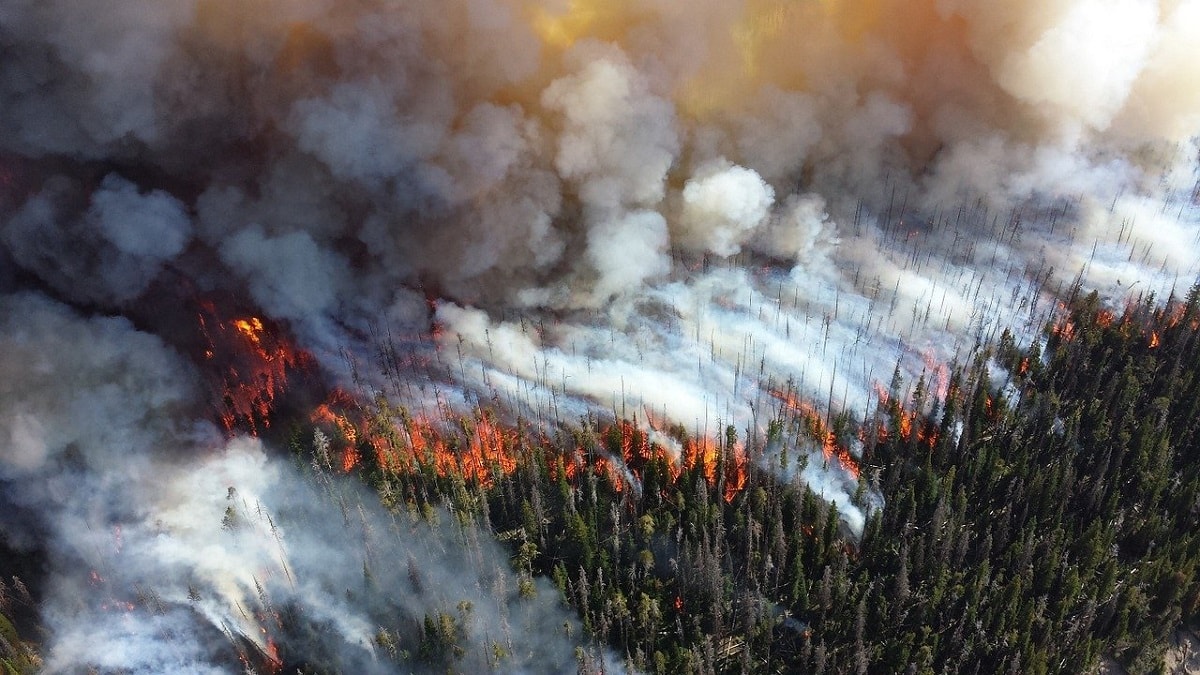
Is it really the end of the world? What’s reality, what’s hyperbole, and what can we do about it?
My parents and grandparents lived through much tougher times, to my thinking. My grandparents had tales of WWI and raising families in the Great Depression. My father served in the Navy near the end of WWII, and my uncle lost a lung at the Battle of the Bulge in Europe. I grew up with the Vietnam war in the background, the riots of the 1960s and nuclear bomb drills in school.
My sisters survived the Mumps and Rubella, while I got vaccines for those. But I still have scars from the Chickenpox. Even so, my grandmother showed me graves of children near Three Forks, Montana, and promised that we didn’t have to worry about the Scarlett Fever they died of because of antibiotics.
Now I have nieces and nephews with their children to consider, and I wonder: What has really changed in the last 150 years or so? And what hasn’t?
For a time, things were looking pretty good. Vietnam ended, nuclear treaties were passed, and the Cold War ended. The Wall came down. Hal Lindsey’s predictions of Armageddon in 1983 went by and, after a few attempts at rescheduling, generally disappeared. Sure, a few doomsday cults cropped up here and there, but we mostly heard of them on the fringes.
Vaccines nearly wiped out many childhood diseases, and cancer treatments were developed, adding years to people’s lives.
Then came the 2000s, and specifically 2020.
- Anti-Vaxxers brought a resurgence in old diseases
- Political upheaval seems to be everywhere
- Climate Change
- Massive Forest Fires and Massive Floods
- COVID-19
- Economic precariousness (if not collapse, for many)
No wonder people are using the term “Apocalyptic” to describe a feeling that the world is ending. But is it?
We have discovered new technologies. We have discovered one another, shortening distances and communications that were inconceivable 150 years ago. We have discovered new ways to grow food and combat disease and illness, lengthening lifespans around the world. But have we discovered how to improve human nature? I think, if anything, we have gone backwards.

We are discovering that the American Ideal isn’t as great as it’s been cracked up to be.
Greed and self-interest remain on the top of our modern totems. It’s more important to get — or stay — ahead of others than to lend a helping hand. We’ve become more polarized and isolated in our views than ever before. Instead of welcoming our new-found neighbors, we build walls.
My husband is convinced that, regardless of the outcome of the elections in November, there will be violence. He may be right. But it doesn’t have to be.
Where are the peacemakers?
My mind has been ruminating on Jesus’ Sermon on the Mount, as found in the book of Matthew, chapters 5-7, and particularly on 5:1-11, also known as the Beatitudes.
In 5:9, Jesus says, “Blessed are the peacemakers, for they will be called sons of God.” (NIV) The Message words it slightly differently: “You’re blessed when you can show people how to cooperate instead of compete or fight. That’s when you discover who you really are, and your place in God’s family.” Jesus goes on in the same sermon to teach about reconciliation, and humility instead of religious ostentation, and the Golden Rule: Treat others as you want to be treated, (in 7:12).
These were things he was teaching his disciples, although the crowds listened in as well. So why aren’t we seeing more of this today among those who call themselves Christians?
No, one does not have to be a Christian to be a peacemaker.
Consider people like Mahatma Gandhi and the Dalai Lama. And that’s a blessing indeed, for it seems many of us who call ourselves Christian are part of the problem rather than the solution.
Instead of seeking justice for the oppressed or freedom for captives, we’ve bought into the “me first” attitude, cloaked in “my family” and “my church” and “my people”. We’ve built moats and walls around our churches with our attitudes, instead of feeding the hungry and healing the sick. We’ve hurt and maimed in the name of Life from conception, while ignoring and discarding the disadvantaged, the disabled, and the elderly, leaving them voiceless, and dying alone.
As human beings, we can do better. Time and again we have shown that we can be compassionate, peace-seeking and peacemaking.
As Christians, we are called to be better. To put on the mind of Christ. To love our neighbor as God has loved us.
This is our challenge for the coming days. We can fight for our comfort and the riches of this earth — hard won or not — or we can seek the Kingdom of God, the righteousness, the justice, and compassion, and mercy, and love that are ours through Grace. And then become the peacemakers among those around us, extending those same gifts to the hurt, unloved, confused, tired, depressed, and alienated.
It’s easy to be a good person — a good Christian, or Jew, or Muslim, or Hindu, or whatever — when life is going well for us. But now, for everyone’s sake, it is time to look beyond. We human beings have the power within our grasp to destroy more than our neighborhoods; we can destroy the world — or not.

Who is willing to become a peacemaker, to stand between the extremes and call for reconciliation? To bind the wounds on both sides? To call for justice for all, and not just the most powerful, or the loudest? To look beyond the hardened faces to the broken hearts?
We need peacemakers, not Armageddon. Will you stand in the gap?
Grace, Peace and Hugs!